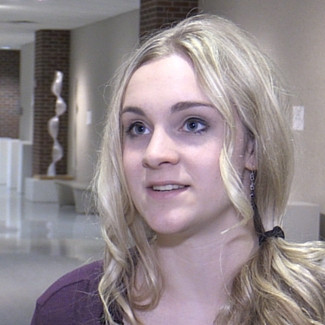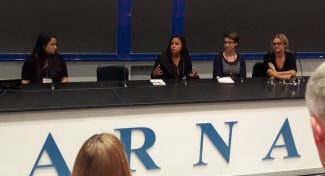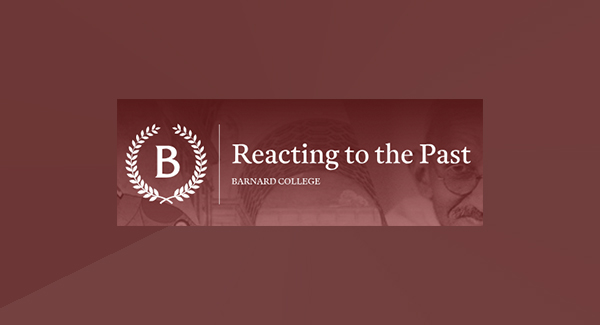Newman students Leanne Vastbinder and Courtney Klaus recently traveled to New York City to participate in the Reacting to the Past Eighteenth Annual Faculty Institute held at Barnard College.
Reacting to the Past is a concept of learning in the form of games, which are set in a historical context during which the students are assigned roles to act out. They are given situations in which they must problem-solve, collaborate and debate on important issues.
The two already had a little first-hand experience with interactive and educational role-playing games thanks to Professor of History Kelly McFall, Ph.D., who introduces all of the Newman freshmen honors students to the games as a way to put them in a unique learning mindset.
Klaus said that her internship with Reacting to the Past during the 2018 spring semester, and McFall’s help, is how she became connected to the conference. As for Vastbinder, her experience with freshmen honors class is what got her started.
“McFall told me about the conference,” said Vastbinder, “and since I’ll be helping with next year’s freshman honors seminar, I thought it would be a great way for me to get even more familiar with the Reacting to the Past concept and the process of game development.”
She expressed how much she’s looking forward to helping McFall during her sophomore year.
“I think it can be easy to sometimes take for granted the education we get — and it might be easy to do the bare minimum (when it comes to learning) — but I’m looking forward to showing and explaining to the students not to take advantage of the history lessons they’ll get because they’re in the games, they are the characters.”

Vastbinder and Klaus each played a little different role during the conference, but both had the same type of preparation.
“Before the consortium, everyone was sent a game book particular to the game they were participating in,” said Vastbinder. “We read through that, processed that, and came up with some arguments we might take. For me, I just thought about it a lot, what my person would think about certain issues. Everyone has an idea of how the games work, but every game is different. Every character has different victory objectives, and they have to sway people and such. It involves a lot of strategic thinking.”
Klaus not only participated in a game but also joined a panel of three to answer questions from an audience about the student experience with the games and what more the professors could do as well as what the students get out of the games.
“The conference is all about teaching professors how they can implement games into their curriculum,” she said. “I knew, going in, that I was going to speak on a panel and looked forward to the challenge because I was going to be playing games with the same professors that would be asking me questions.”
Klaus added, “The panel was very memorable for me because it’s such an interesting experience to feel like you’re teaching the professors something. It felt like people were listening and learning from me.”
Both Klaus and Vastbinder were able to facilitate a game with the attendees. Vastbinder said doing that during the conference was something she was most nervous about.
“Facilitating, honestly, was more nerve-wracking,” she explained, “because the people playing were faculty and they’ve had teaching experience and they are very knowledgeable. But the French revolution game is one I’ve played before, so I was able to help the factions that I’d been in. Because of what I’ve learned, I was able to help them with their approach during the game.”

Both said their experience was memorable and a solid learning experience.
Klaus said, “I wanted to learn more about the games that professor McFall uses in his courses. I’m considering pursuing something like that for my honors thesis — designing a game. But also, because I did the internship, I wanted to be able to meet the people I was working with face to face. It was a chance for me to see what I was doing and how my work was paying off.”
Vastbinder said, “Walking in, I didn’t know what to expect playing with faculty instead of students. But it was really smooth. I didn’t feel like I was a student but more like we were all there for a united purpose — the games themselves and the historical factor. I was nervous going in, but the experience was really great.”

Klaus added, “It was such a cool opportunity. I felt like I got to know professors from all over. I was happy to go and coming back I feel like I really learned a lot. Not just about history, but about universities and professors and how they go about teaching.
“There is a big emphasis (in the games) on putting yourself in someone else’s shoes. You might have a character that doesn’t follow your ideological beliefs, or your character is a middle-aged man, and you’re a young woman, but having that empathy helps put things in perspective. In both our knowledge of history and in our current, daily lives.”


